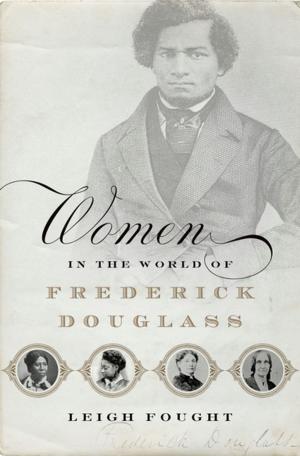The Pretenses of Loyalty
Locke, Liberal Theory, and American Political Theology
Nonfiction, Religion & Spirituality, Philosophy, Political, Theology| Author: | John Perry | ISBN: | 9780199339952 |
| Publisher: | Oxford University Press | Publication: | July 6, 2011 |
| Imprint: | Oxford University Press | Language: | English |
| Author: | John Perry |
| ISBN: | 9780199339952 |
| Publisher: | Oxford University Press |
| Publication: | July 6, 2011 |
| Imprint: | Oxford University Press |
| Language: | English |
In the face of ongoing religious conflicts and unending culture wars, what are we to make of liberalism's promise that it alone can arbitrate between church and state? In this wide-ranging study, John Perry examines the roots of our thinking on religion and politics, placing the early-modern founders of liberalism in conversation with today's theologians and political philosophers. From the story of Antigone to debates about homosexuality and bans on religious attire, it is clear that liberalism's promise to solve all theo-political conflict is a false hope. The philosophy connecting John Locke to John Rawls seeks a world free of tragic dilemmas, where there can be no Antigones. Perry rejects this as an illusion. Disputes like the culture wars cannot be adequately comprehended as border encroachments presided over by an impartial judge. Instead, theo-political conflict must be considered a contest of loyalties within each citizen and believer. Drawing on critics of Rawls ranging from Michael Sandel to Stanley Hauerwas, Perry identifies what he calls a 'turn to loyalty' by those who recognize the inadequacy of our usual thinking on the public place of religion. The Pretenses of Loyalty offers groundbreaking analysis of the overlooked early work of Locke, where liberalism's founder himself opposed toleration. Perry discovers that Locke made a turn to loyalty analogous to that of today's communitarian critics. Liberal toleration is thus more sophisticated, more theologically subtle, and ultimately more problematic than has been supposed. It demands not only governmental neutrality (as Rawls believed) but also a reworked political theology. Yet this must remain under suspicion for Christians because it places religion in the service of the state. Perry concludes by suggesting where we might turn next, looking beyond our usual boundaries to possibilities obscured by the liberalism we have inherited.
In the face of ongoing religious conflicts and unending culture wars, what are we to make of liberalism's promise that it alone can arbitrate between church and state? In this wide-ranging study, John Perry examines the roots of our thinking on religion and politics, placing the early-modern founders of liberalism in conversation with today's theologians and political philosophers. From the story of Antigone to debates about homosexuality and bans on religious attire, it is clear that liberalism's promise to solve all theo-political conflict is a false hope. The philosophy connecting John Locke to John Rawls seeks a world free of tragic dilemmas, where there can be no Antigones. Perry rejects this as an illusion. Disputes like the culture wars cannot be adequately comprehended as border encroachments presided over by an impartial judge. Instead, theo-political conflict must be considered a contest of loyalties within each citizen and believer. Drawing on critics of Rawls ranging from Michael Sandel to Stanley Hauerwas, Perry identifies what he calls a 'turn to loyalty' by those who recognize the inadequacy of our usual thinking on the public place of religion. The Pretenses of Loyalty offers groundbreaking analysis of the overlooked early work of Locke, where liberalism's founder himself opposed toleration. Perry discovers that Locke made a turn to loyalty analogous to that of today's communitarian critics. Liberal toleration is thus more sophisticated, more theologically subtle, and ultimately more problematic than has been supposed. It demands not only governmental neutrality (as Rawls believed) but also a reworked political theology. Yet this must remain under suspicion for Christians because it places religion in the service of the state. Perry concludes by suggesting where we might turn next, looking beyond our usual boundaries to possibilities obscured by the liberalism we have inherited.















